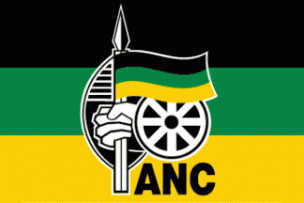South Africans lose faith in politics
 Dissatisfaction with the government has reached crisis proportions. Only 54% of those surveyed believe the government is performing well, down from 74% in 2002. More than a third of South Africans are not interested in politics at all.
Dissatisfaction with the government has reached crisis proportions. Only 54% of those surveyed believe the government is performing well, down from 74% in 2002. More than a third of South Africans are not interested in politics at all. Only 55% of South Africans have confidence in parliament, 52% in provincial government, and a mere 49% in local government. Some 35% of South Africans are not interested in politics and elections, while one in four South Africans said they would not be voting in the 2014 national and provincial elections. When asked why, 44% of respondents said that ‘things will stay the same no matter who wins’.
While this is clearly a threat to the ANC's cherished two-thirds majority, it is not particularly heartening news for the opposition either. Politicians of every stripe are being tarred with the same brush as the ruling elite.
What should alarm the ANC most is its own internal surveys showing it is likely to win just 45% of the vote in Gauteng. So expect some energetic electioneering in the province over the next few months. This means one of two things: either the ANC will have to form a coalition to continue running the province, or it loses it outright. The opposition is already galvanising widespread public disaffection over E-Tolls and embarrasing the ANC at every turn. Nkandla-gate is also being used as a metaphor for ANC governance as a whole. After all, the party chose Jacob Zuma as its president at a time when he was facing multiple fraud and other charges, then rubber-stamped the building of his private palace at Nkandla. That surely begs a few questions about the ruling party's commitment to honest government.
The opposition can cherry-pick elements of the SAIRR survey that advance their own agenda and point to the disastrous performance of this government, starting with the anemic economy, then moving smartly to E-Tolls, Zuma's palace at Nkandla (paid for by tax-payers), corruption, the Marikana shootings... There's no shortage of scandal with which to hammer the government. But the crisis appears to run deeper than this. South Africans are losing faith in the entire political system, opposition included. That leads to voter apathy. The danger with voter apathy is that it can serve to prop up a bad government, since the only thing that counts on election day is which party wins the highest percentage of votes. There are no penalties for absent voters. If just half the electorate turn out to vote, the winner is still the winner. What can change this is a very real chance of opposition victory in a province such as Gauteng. The Democratic Alliance is working vigorously to get every supporter to the polls, as they sense they have their best opportunity yet to de-throne the ANC in the country's economic heartland.
If the SAIRR survey is reflective of the entire country, then the ANC has managed to squander the Mandela legacy before it's been spent. Already, President Zuma is playing the race card, pointing up the income disparities between whites and blacks - while ignoring the fact that the income gap is narrowing at impressive speed. This is calculated to appeal to the angry youth and Julius Malema's Economic Freedom Fighters, who have assumed the ANC's struggle mythology as their own.
In January, Zuma answered those in his own ranks who questioned his suitability for leadership by saying the ANC would rule "forever and ever." This is the kiss of death for many a leader. Rhodesia's Ian Smith made a similar claim, Adolf Hitler promised a 1,000 year Reich, and even Robert Mugabe promised - or threatened - that his crew would rule to the end of time (or words to that effect). Such claims denote desperation.
How long before the ANC ditches Zuma? That depends on the outcome of the election. A bad result and he will be shown the door. Then he may have to face the charges he managed to side-step at the time he became president. This could get messy.
Pre-election surveys are not always to be trusted, but this one was not a political party poll. It should worry anyone currently in politics. Georgina Alexander, a researcher at the IRR, said, ‘While the accuracy of opinion polls is open to debate, it is a way to get a general idea of how people in South Africa feel and what they think about particular current issues. They allow us to take the temperature of the population, so to speak. These surveys tell us that there is a great deal of dissatisfaction and disillusionment. Political parties would be wise to address these issues’.
















